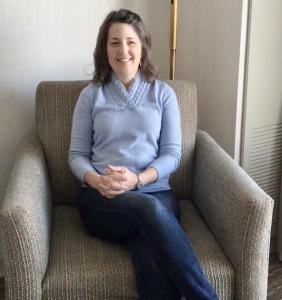Pamela Heinselman

NOAA Heritage Oral History Project
NOAA Heritage Oral History Project aims to document the history and legacy of NOAA through compelling interviews with its leaders. These firsthand accounts provide an invaluable resource that preserves NOAA's significant contributions to environmental research and management, fostering a deeper understanding of NOAA's vital role in shaping our understanding of the Earth's oceans and atmosphere.
Molly Graham
Dr. Pamela Heinselman was born in Kansas City, Missouri, in 1970 and moved to Maryland before her first birthday. She came back to Missouri to study at St. Louis University, earning an undergraduate and master of science degree in meteorology there. She went on to the University of Illinois to pursue a PhD in Atmospheric Sciences, but left after a semester to work for the University of Oklahoma Cooperative Institute for Mesoscale Meteorological Studies. Her work there focused on the Weather Surveillance Radar-1988 Doppler which was being implemented throughout the U.S. In 1998, Pam returned to school and earned her PhD in meteorology from the University of Oklahoma in Norman in 2004. She worked as a lead meteorologist and research scientist for the National Severe Storms Laboratory's Phased Array Radar Program. Since 2017, Pam has served NOAA as the Division Chief of Forecast Research and Development Division and Manager of Warn-on-Forecast Project.
Please Note: The oral histories in this collection are protected by copyright and have been created for educational, research and personal use as described by the Fair Use Doctrine in the U.S. Copyright law. Please reach out Voices@noaa.gov to let us know how these interviews are being used in your research, project, exhibit, etc. The Voices staff can help provide other useful resources related to your inquiry.
The NOAA mission is to understand and predict changes in climate, weather, oceans, and coasts, to share that knowledge and information with others, and to conserve and manage coastal and marine ecosystems and resources. The Voices Oral History Archives offers public access to a wide range of accounts, including historical materials that are products of their particular times, and may contain offensive language or negative stereotypes.
Voices Oral History Archives does not verify the accuracy of materials submitted to us. The opinions expressed in the interviews are those of the interviewee only. The interviews here have been made available to the public only after the interviewer has confirmed that they have obtained consent.
